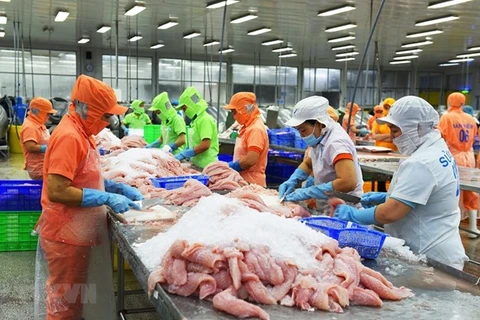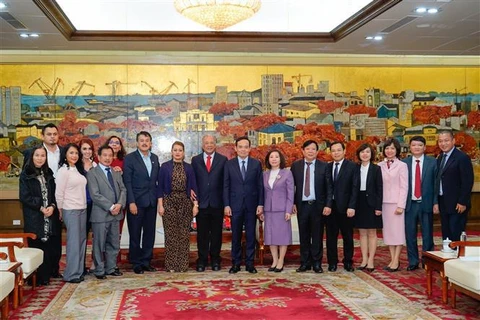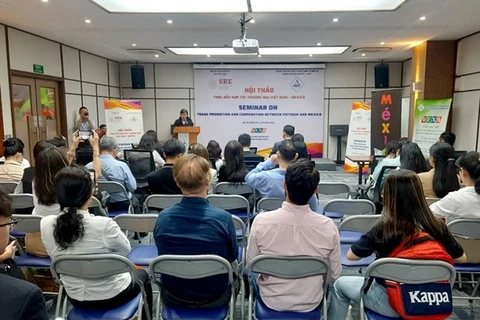 Processing Tra fish for export at Hung Ca limited company in Thanh Binh district, Dong Thap province. (Photo: VNA)
Processing Tra fish for export at Hung Ca limited company in Thanh Binh district, Dong Thap province. (Photo: VNA) With a population of some 130 million, Mexico consists of all consumer segments. Meanwhile, Vietnam’s export market share in the North American nation has reached only about 1.3%, hence a plenty of room for growth.
Both countries are members of the Comprehensive and Progressive Agreement for Trans-Pacific Partnership (CPTPP), therefore, taking advantage of tariff preferences brought about by the pact is an important lever to promote their bilateral trade. Accordingly, Mexico has committed to eliminating 77% of tariff lines from January 14, 2018, and 98% after a decade since the coming into force of the agreement. Some Vietnamese products that can take advantage of the tax incentives include Tra and basa fish, tuna, rice and garment-textile.
Cao Thi Phi Van, deputy head of the Ho Chi Minh City Investment and Trade Promotion Centre, said the Vietnam-Mexico economic and commercial ties have been flourishing, particularly after the CPTPP was signed and took effect.
However, statistics showed that Vietnam exported more than 575 million USD to Mexico in the first two months of 2023, down 16.9% year-on-year. Part of the decrease was attributable to a reduction in Vietnam’s shipment of computers and electronic components to the market during the period.
Commenting on the issue, Luu Van Khang, Vietnamese Trade Counselor in Mexico (concurrently Guatemala, Honduras, El Salvador, and Belize), said after the shortage of electronic chips is resolved, the countries' trade turnover will bounce back.
In order to increase the identification of Vietnamese goods in Mexico, trade experts suggested that the Ministry of Industry and Trade consider organising a delegation of 10-15 businesses to participate in large specialised fairs in Mexico every two years.
They noted that Mexican distributors do not import directly from businesses and need products that are already registered and distributed in Mexico. Therefore, Vietnamese processed food products that want to penetrate this market must have distribution agents in the host country. This is an opportunity for companies to open a representative branch in Mexico, then bring their goods into the local supermarket chains and distribution systems./.
VNA























